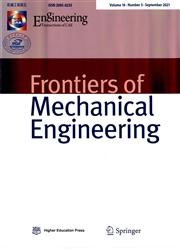使用柴油和天然气燃料的送货卡车维护成本估算的机器学习模型
IF 4
2区 工程技术
Q1 ENGINEERING, MECHANICAL
引用次数: 0
摘要
根据运输的货物类型,维护成本约占生产货物成本的15%-60%。为了遵守严格的排放法规,柴油发动机配备了复杂的后处理系统,需要增加维护。天然气和丙烷等替代燃料的可用性促进了天然气和丙烯动力系统以及重型和中型车辆的电气化选择。采用替代燃料汽车的一个关键障碍是缺乏与传统柴油相比车辆维护/维修成本的知识。此外,操作区域、车辆操作类型和季节性温度变化也会影响工作周期,从而影响维护和维修成本。这项研究的重点是使用机器学习模型,如随机森林、xgboost、神经网络和超级学习器模型,估计重型车辆的每英里成本。超级学习者模型的平均绝对误差和均方根误差分别低至0.0068美元/英里和0.0086美元/英里,确定系数/R平方为97.28%。具体而言,本文调查了从使用柴油和天然气燃料的送货卡车的维护和维修成本中收集的数据。由于数据的可用性是主要的制约因素,我们利用了西弗吉尼亚大学收集的数据以及与船队公司的合作关系。这允许提供与替代燃料车辆的维护成本和车队特定维护实践相关的额外信息。这项研究推广了清洁燃料技术,并使车队管理公司能够在维护成本与柴油车相似或更低的情况下采用替代燃料车,从而减少排放和总拥有成本。本文章由计算机程序翻译,如有差异,请以英文原文为准。
Machine learning models for maintenance cost estimation in delivery trucks using diesel and natural gas fuels
The maintenance costs can represent about 15%–60% of the cost of produced goods depending on the type of goods transported. To comply with stringent emissions regulations, diesel engines are incorporated with complex after-treatment systems that demand increased maintenance. The availability of alternative fuels such as natural gas and propane has fostered the natural gas and propane powertrain systems as well as electrification options for heavy- and medium-duty vehicles. A critical barrier to adopting alternative fuel vehicles has been the lack of knowledge on comparative vehicle maintenance/repair costs with conventional diesel. Moreover, the region of operation, the type of vehicle operation, and seasonal temperature changes also affect the duty cycle which impacts the maintenance and repair costs. This study focuses on estimating the cost-per-mile for heavy-duty vehicles using machine learning models such as random forest, xgboost, neural networks, and a super-learner model. The super-learner model achieved an error as low as 0.0068 $/mile for mean absolute error and 0.0086 $/mile for root mean square error with a coefficient of determination/R-Squared of 97.28%. Specifically, the paper investigates the data collected from the maintenance and repair costs associated with delivery trucks using diesel and natural gas fuels. Since the availability of data is the major constraint, we leveraged the data collected by West Virginia University and the partnership with fleet companies. This allows for additional information related to maintenance costs and fleet-specific maintenance practices of alternative fuel vehicles. This study promotes clean fuel technologies and enables fleet management companies to adopt alternative fuel vehicles in case of similar or lower cost of maintenance compared to diesel vehicles resulting in reduced emissions and total cost of ownership.
求助全文
通过发布文献求助,成功后即可免费获取论文全文。
去求助
来源期刊

Frontiers of Mechanical Engineering
Engineering-Mechanical Engineering
CiteScore
7.20
自引率
6.70%
发文量
731
期刊介绍:
Frontiers of Mechanical Engineering is an international peer-reviewed academic journal sponsored by the Ministry of Education of China. The journal seeks to provide a forum for a broad blend of high-quality academic papers in order to promote rapid communication and exchange between researchers, scientists, and engineers in the field of mechanical engineering. The journal publishes original research articles, review articles and feature articles.
 求助内容:
求助内容: 应助结果提醒方式:
应助结果提醒方式:


